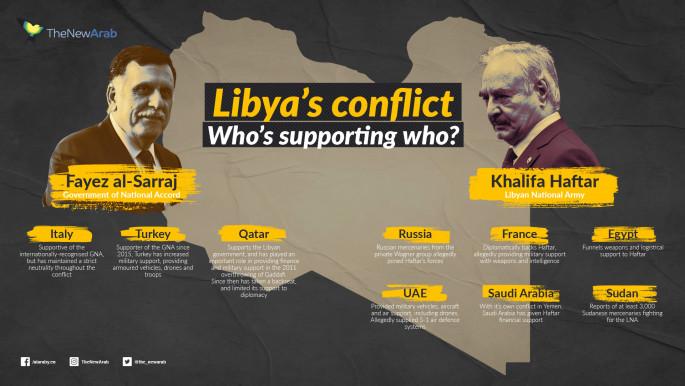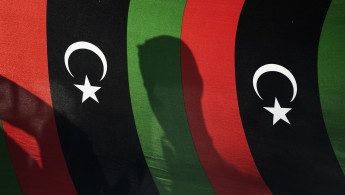Libya rivals agree to turn shaky truce into 'lasting ceasefire', UN says
The agreement came as UN Secretary-General Antonio Guterres denounced as a "scandal" continuing foreign interference in the war-torn country.
"The principle has been adopted from the first session. Now the question is what are the conditions," Ghassan Salame told reporters in Geneva.
Five senior officers appointed by the UN-recognised Government of National Accord (GNA) and five appointed by the Libyan National Army (LNA) of strongman Khalifa Haftar are taking part in the talks.
Read also: Berlin Conference: Breakthrough for Libya, or more of the same?
"We started yesterday to discuss with them... an attempt to transform the truce into a more solid one, less often violated by either side," he said.
The talks are being moderated by Salame, who last week lashed out at what he branded "unscrupulous" foreign players for meddling in the conflict in the North African country.
The talks started on Monday and continued on Tuesday, Salame said.
 |
| [Click here to enlarge] |
"There is a genuine will for both parties to sit together and start negotiating together," he said.
"So far we had separate sessions for both parties but I'm sure the time will come for the two sides to sit together," he added.
At a summit in the German capital Berlin last month, world leaders committed to ending all foreign interference in Libya and to uphold a weapons embargo to help end the long-running civil war.
Guterres told reporters in New York that the embargo "remains violated".
"I must say I'm deeply frustrated with what's happening in Libya. I think that what's happening is a scandal," he added.
Salame said the two sides would meet for talks on economic cooperation in Cairo on February 9 and could hold political talks on resolving the conflict in Geneva in two weeks' time.
He also reiterated his calls for the international community to assist with the lifting of an oil blockade imposed by forces loyal to Haftar and to prevent the flow of arms and mercenaries into Libya.
Libya has been mired in chaos since a 2011 NATO-backed uprising that killed longtime dictator Muammar Qaddafi, with two rival administrations vying for power.
The conflict deepened when Haftar, who controls much of the south and east of Libya, launched an assault last April to seize Tripoli, the base of the GNA led by Fayez al-Sarraj.
Last month, Turkish President Recep Tayyip Erdogan said the Libyan crisis could not be solved by "military means", after talks with his Algerian counterpart in Algiers.
Algeria, which shares a 1,000-kilometre (620-mile) border with Libya, is trying to mediate a political settlement to the conflict gripping its neighbour that threatens regional stability.
"We have said from the beginning that the Libyan crisis would not be resolved through military means," Erdogan told reporters after meeting Algerian President Abdelmadjid Tebboune.
"We are in intense negotiations with the countries of the region and with international actors to secure the ceasefire and facilitate the return to political dialogue in Libya," Erdogan told reporters.
Ankara has sent military aid to the GNA, while Algiers last week hosted a meeting of Libya's neighbours that rejected "any foreign interference" in that country and called for a negotiated settlement.
Tebboune said he was "in complete agreement" with Erdogan on the need to "follow what was decided in Berlin" last Sunday, when world players called for an end to foreign interference in Libya and a resumption of the peace process.
"We are working together for peace through daily and precise monitoring of all developments on the ground," he said.
Erdogan's visit came as the UN mission in Libya said weapons were pouring into the North African country in violation of a 2011 Security Council resolution, and despite commitments by world powers in Berlin.
Follow us on Twitter and Instragram to stay connected





 Follow the Middle East's top stories in English at The New Arab on Google News
Follow the Middle East's top stories in English at The New Arab on Google News
![Israeli forces ordered bombed Gaza's Jabalia, ordering residents to leave [Getty]](/sites/default/files/styles/image_330x185/public/2176418030.jpeg?h=a5f2f23a&itok=_YGZaP1z)

